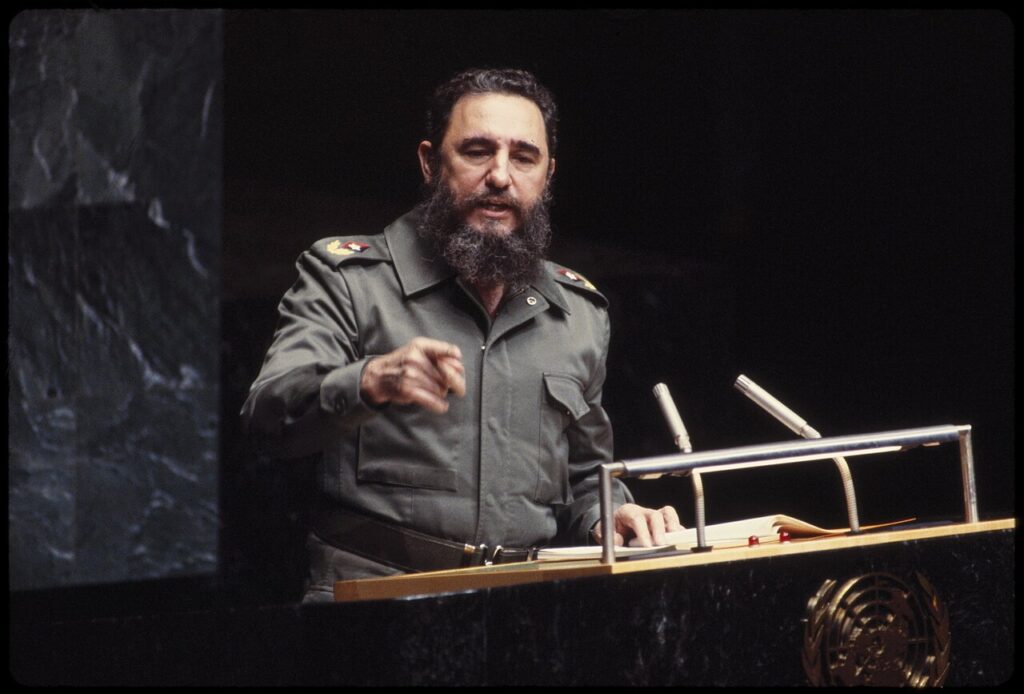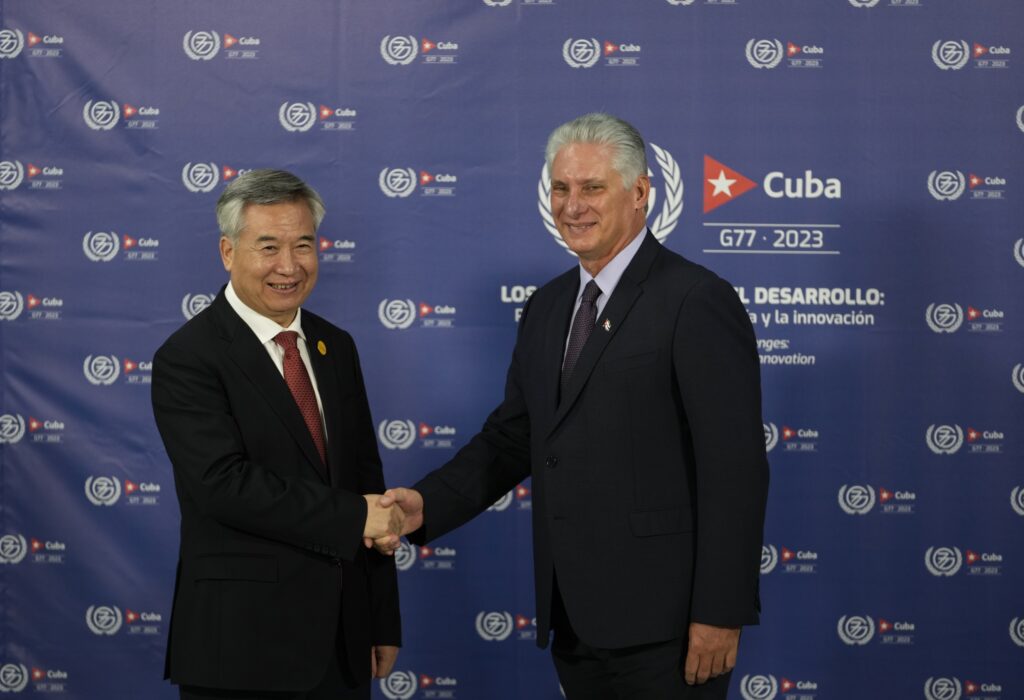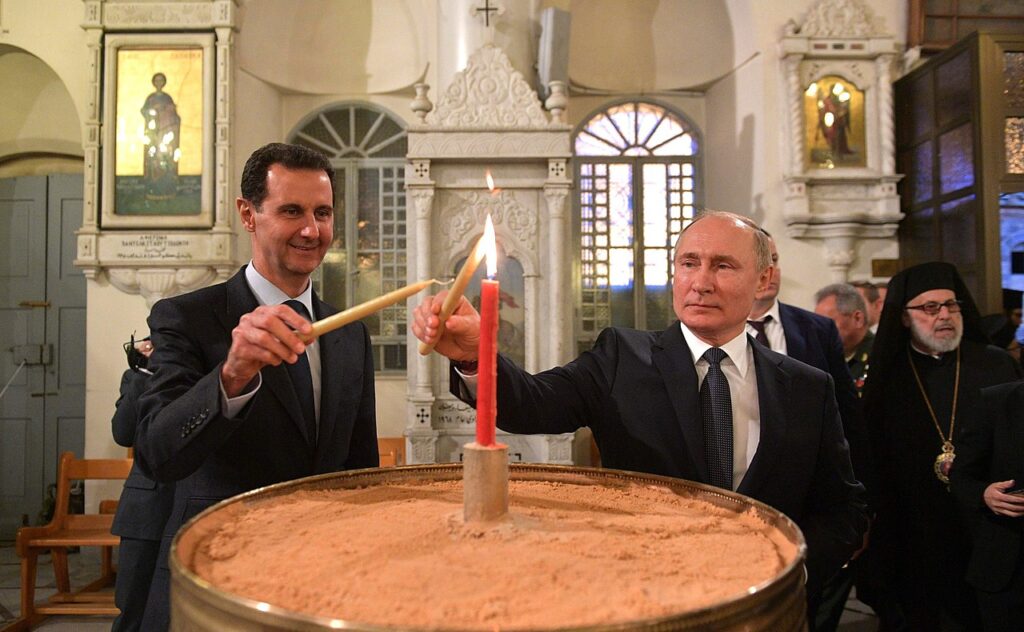In Cuba, Communist China Trades Places with Russia
Costly Ukraine war forces Russia to retrench — in Cuba and elsewhere.

Communist China is quietly displacing Russia as Cuba’s largest investor, trading partner, and strategic ally. Decades ago, the Moscow-Havana link came into view during the 1962 Cuban missile crisis. After the 1991 collapse of the Soviet Union, though, Moscow’s interest in Cuba waned. Now, the Kremlin’s costly war against Ukraine is forcing Russia to pull in its horns — in Cuba and around the world.
For years, Communist China assigned a low priority to Cuba. It saw poor trade prospects in a country with a stagnant economy and a shrinking population. The lights turned on, though, when Beijing realized the spying opportunities in a 780-mile long strip of land only 90 miles south of Florida.
“Due to Cuba’s proximity to Florida,” Chinese spying facilities on the island “grant China Signals Intelligence coverage of around 20 key [American] bases and installations,” the Center for Strategic and International Studies’s Americas director, Ryan Berg, said in recent congressional testimony. “The most significant military installations in and around Florida include Naval Air Station Pensacola, Tyndall Air Force Base, MacDill Air Force Base, Naval Air Station Key West, King’s Bay Submarine Base, Cape Canaveral, and of course, the United States Southern Command.”

It’s a long way since 1965. In that year, Fidel Castro responded to China cutting rice shipments to Cuba by dismissing Mao Tse-Tung as a “senile idiot.” Fast forward to this year: China is surpassing Spain as Cuba’s largest trading partner.
Across the tropical island, Chinese investment is as visible as the 55 Chinese-funded solar parks now under construction. By 2028, another 37 are to be built, making for a total of two gigawatts of new electric power. Even though 10 percent of Cuba’s population has emigrated since 2022, the island’s decaying power network suffered four national blackouts over the last year.
Fuel shortages are so severe that the solar kits are delivered from China with enough diesel to ensure that freight trucks make it from ports to work sites. With island transport infrastructure constantly breaking down, China is providing 100 new locomotives and repair parts for 100 city buses.
Less visible — and less welcome by democracy advocates — some of China’s $8 billion in aid and investment follows an authoritarian-to-authoritarian model. Three Chinese companies sanctioned or investigated by the U.S. — Huawei, TP-Link, and ZTE — form the basis for Cuba’s cellphone system and sole internet provider, Etesca. Huawei software can be used to filter web searches. During food protests in July 2021, Cuba’s government shut down internet and cellphone service to block communication across the island and with the outside world.

Another Chinese company with military links, Nuctech, operates scanning equipment in Cuban airports, seaports, and customs checkpoints. Citing security risks, Canada and America have banned Nuctech equipment from their airports.
“The Chinese should be watched very carefully,” an Obama-era chargé d’affaires at Havana, Jeffrey DeLaurentis, told the Sun. With posts in Cuba dating back to 1991, he sees that Russia no longer has the money to fulfill its Cuban dreams.
Two years ago, Russia’s deputy prime minister, Dmitry Chernyshenko, visited Cuba to reopen a Russia-funded steel plant and to sign eight agreements with Cuba’s president, Miguel Díaz-Canel. Two weeks ago, Reuters’ Havana bureau chief, Dave Sherwood, checked on these projects. The steel mill was shuttered. There was no apparent progress on three projects: a “Rusmarket” at Havana, the refurbishing of Havana’s 19th-century Plaza Vieja, and the restoration of Havana’s beachfront Tarara community.
The shrinkage of Russia in Cuba is part of larger losses of influence in areas where it long held sway. In the Middle East, Israel has hamstrung Moscow’s allies — Hamas and Hezbollah. In December, Moscow was unable to save its ally of 50 years, the al-Assad regime. In Iran, six months after Moscow signed a 30-year “strategic partnership” with Tehran, the Kremlin stood idly by while America bombed Iran’s nuclear facilities.
“Tehran has found that Moscow appears unwilling or unable to offer anything more substantial than diplomatic gestures,” a Russia analyst, Elena Davlikanova, wrote last week for the Atlantic Council. “Putin has his hands full dealing with Ukraine and is currently in no position to provide Russia’s partners with protection.”

In Armenia, a Russian ally for two centuries, the parliament voted last week to allow the nationalization of a Russian-owned electricity company, the nation’s largest. In another sign of post-colonial insubordination, Azerbaijan last week frog-marched before TV cameras eight bruised and bloodied Russian men arrested on cyber crime charges.
“The conflict with Azerbaijan has sharply aggravated Russia’s loss of influence in the post-Soviet space,” a Carnegie Russian Eurasia Center analyst,Tatiana Stanovaya, posted last week on Telegram. “The geopolitical shallowing of the importance of the post-Soviet space is a direct consequence of the war with Ukraine, which will have serious long-term consequences.”
Trying to regain control of the narrative, Russia last week became the first nation in the world to recognize the Taliban government in Afghanistan.
“Recognition of the Taliban is first and foremost a symbolic move. It comes as Russia’s key partners in the Middle East suffer one defeat after another,” an expert at the Carnegie Endowment, Nikita Smagin, wrote yesterday. “Russia is trying to restore its image as a global power that determines the international agenda.”
As Russia’s influence slowly fades into Cuban history books, China moves to take its place. Last year, the vice chairman of China’s Central Military Commission met at Beijing with General Víctor Rojo Ramos. Speaking as a central committee member to a central committee member, the Chinese general assured his Cuban counterpart that “China and Cuba enjoy ever-lasting and unbreakable friendship.” Similar words of mutual support were expressed in May when Mr. Díaz-Canel met at Moscow with his Chinese counterpart, President Xi Jinping.
In Cuba, China reportedly pays billions of dollars for the use of three former Soviet listening posts. A new one, a circularly disposed antenna array near Havana, can pinpoint radio signals as far away as Boston. In a letter in May to the homeland security secretary, Kristi Noem, four House Republican leaders warned of Cuba: “The PRC is positioning itself to systematically erode U.S. strategic advantages without ever firing a shot.”

